Creativity is a must-have ingredient to come up with innovative ideas. What’s your definition of creativity? For many of us, creativity is either a precious-priceless painting in a museum or a masterwork of literature or something like an awe-inspiring piece of music. But mind it creativity is much more than what is reflected in a canvas painting; in the pages of a book; or over the keys of a piano. Creativity is not merely artistry – you may find creativity in the work of coders, marketers, developers, programmers, or an entrepreneur involved in an innovative business venture or potentially in the work of any individual undertaking something new and innovative in nature. Could you believe that everyone out there is creative and truly capable of innovation? Being creative is a beneficial and valuable skill for all life endeavors. The good news is that creativity is an innate ability that everyone possesses, and it can be honed too. Creativity is something that grows with time and effort, and that is really worth exploring. Creativity is like a muscle i.e. it can be stretched, challenged, and pushed from its comfort zone, so you must think of stretching your creativity muscle in order to start thinking creatively.
Creativity is driven from curiosity and openness: Curiosity drives your questioning and sense-making ability. The more you are curious, the more creative you are and the more you will start searching for patterns, causalities, and opportunities then. Curiosity bridges the gap between what you know and what you don’t. Some people say that they have an unbounded curiosity, and they think that it’s making them astray, and they are not able to focus well. But this is not the case always, in fact, an unbounded curiosity sometimes leads to breakthrough ideas.
will start searching for patterns, causalities, and opportunities then. Curiosity bridges the gap between what you know and what you don’t. Some people say that they have an unbounded curiosity, and they think that it’s making them astray, and they are not able to focus well. But this is not the case always, in fact, an unbounded curiosity sometimes leads to breakthrough ideas.
Of course, you must avoid distractions, but this is handy only when you start moving from reflection to action. Otherwise, there is no need to control your curiosity and openness so that the door for new ideas must always be open for you. For instance, it was deep curiosity and openness that made Elon Musk work in a totally different domain and found SpaceX in 2002 (aiming to lower the cost of space travel enough so that one day Mars might be colonized), while he was originally working for his well-established software business. When he was getting the venture up and running—and striving to push towards its active phase—he came up with the idea of creating an electric roadster which made him invest in Tesla, he became its chairman, and led its fundraising efforts. By 2008 he was the CEO of two cash-guzzling start-ups. So, the takeaway for innovators is inquisitiveness and expansive thinking that leads to high levels of creativity that’s possible only when you have an unbounded curiosity and when you are open to new ideas.
Your ability to be curious brings about new experiences and ideas and when you are open to new experiences and ideas, you make a way towards ‘what ifs’. Once you start thinking about what-ifs and their possible answers, you get an opportunity to connect the dots between unrelated concepts and domains. Connecting the irrelevant dots allows you make new curious and weird connections or combinations, and this is what innovation is all about.
‘What if’ might be a simple question for you, but it actually sparks creativity. ‘What-ifs’ are the questions that fiction writers employ for the world-building in a novel.
- Think about as many what-ifs as you can.
- Then find answers for your what-ifs
- Once you will find answers for your what-ifs, you will start generating new ideas.
For most of our lives, we generalize our surroundings. It’s the creative mind that takes note and wonders about the a-symmetric in the experience. While the elk may approach an environmental experience with caution for safety, the creative mind searches its environment in a similar way and will lean into the series of senses that constitute their best gifts, but instead of searching for threats, the creative mind searches for the meaning of the differences, the causes of the a-symmetric patterns that caught their attention. Next, they leverage what famed 19th-century author Rudyard Kipling suggests is their 6 honest servants to question what is being observed. In a poem entitled:
I Keep Six Honest Serving Men
I KEEP six honest serving men (They taught me all I knew); Their names are What and Why and When And How and Where and Who. I send them over land and sea,
and When And How and Where and Who. I send them over land and sea,
I send them east and west; But after they have worked for me, I give them all a rest.
I let them rest from nine till five, For I am busy then, As well as breakfast, lunch, and tea, for they are hungry men. But different folk have different views; I know a person small— She keeps ten million serving-men, Who get no rest at all! She sends me abroad on her own affairs. From the second she opens her eyes— One million Hows, two million Wheres, And seven million Whys!
The person who has the tendency to obsess and fixate is the one who can mine the environment for insights. Whenever you observe something that makes you ponder in greater detail, you should capture your understanding of the experience, when it happens and support it later through additional contemplation – extension i.e. combine or mold your thoughts later to create greater thoughts.
Your never-ending appetite for new ideas lets you make new connections and gives birth to new thought patterns every day. So, you must be super optimistic about every new idea and passionate about making their connections with old ideas.
If you want to advance your Ideation or innovation journey, join the TDN platform today.
Sign up now to come up with a next big idea!
Already have a breakthrough idea? Bring it to life Now! Schedule a free consultation.
Follow us:
Facebook : Think Different Nation
Instagram : Think Different Nation
Twitter : @TDN_Podcast
